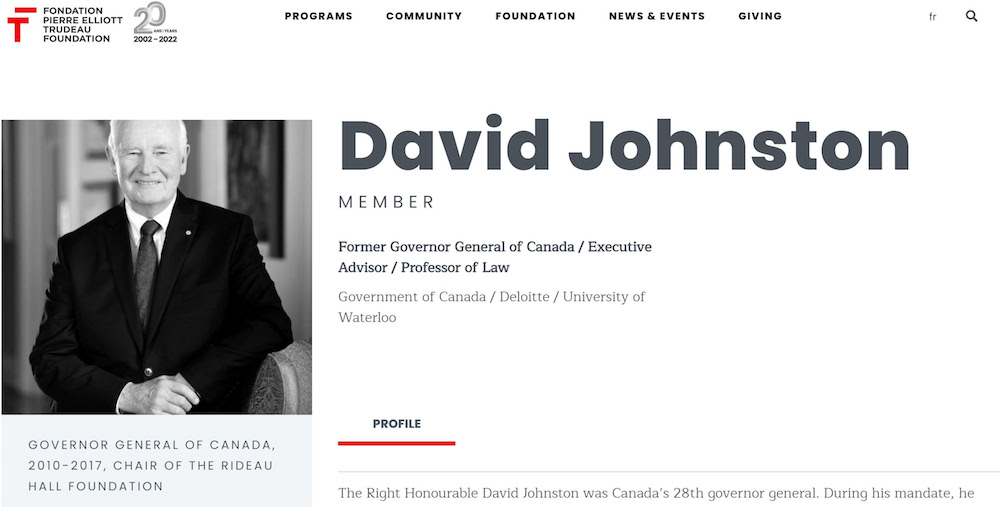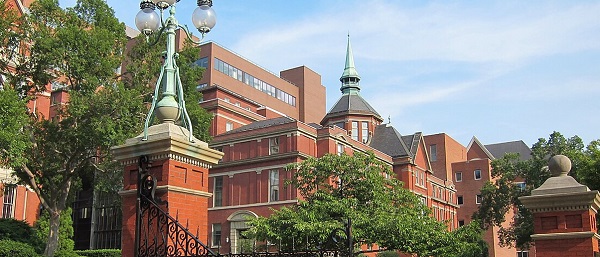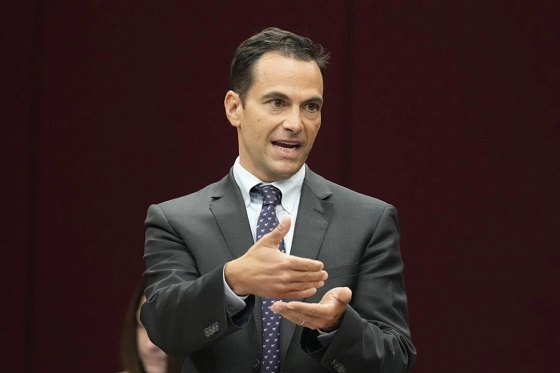National
Trudeau appoints a member of the Trudeau Foundation to investigate donations to the Trudeau Foundation – PPC leader Maxime Bernier

While opposition parties form positions on the Prime Minister’s appointment of former Governor General David Johnston as his Special Rapporteur, PPC Leader Maxime Bernier is expressing extreme outrage.
In this newsletter Bernier is using to both spread the news, and to raise money, Bernier points out just how closely tied the Trudeau family is to the former Governor General.
Another day, another example of Liberal corruption in Trudeau’s government.
To address increasing concerns around Chinese interference in our elections, Justin Trudeau said earlier this week that he would appoint a “special rapporteur”—whatever that means—to conduct an investigation.
Yesterday he announced he would be appointing former Governor General, David Johnston, to this position.
Trudeau is describing Johnston as a “Harper appointee” to try and make it seem like an impartial appointment when in reality it is anything but.
Johnston is a standing member of the Trudeau Foundation, the charity that accepted a $200,000 donation from the Chinese Communist Party laundered through a Chinese Canadian businessman.
Is this for real? Trudeau appoints a member of the Trudeau Foundation to investigate interference which involved donations to the Trudeau Foundation?!
It’s a clear conflict of interest!
To make things even more suspect, on multiple occasions, Trudeau has lovingly described Johnston as a “family friend,” having grown up alongside Johnston’s children.
Don’t believe me? Listen to Trudeau describe their relationship!
More recently, Johnston has been the Commissioner of the Leaders’ Debates Commission since it was established in 2018.
An organization whose mandate is to interfere with our elections!
As Commissioner, Johnston was responsible for trying to exclude dissident media organizations, like Rebel Media and True North, from covering the debates and holding the party leaders to account.
He was responsible for the absurd debate formats designed to protect the establishment narrative.
He was also responsible for wrongly excluding me from the debate stage during the 2021 election!
This was at the height of the covid craziness, when having me on national television would have completely destroyed the mainstream narrative.
This is the man who’s supposed to investigate interference in our election?
It’s absurd, but I can’t say I’m surprised. Canada under Trudeau has quickly become a corrupt banana republic.
We saw the exact same playbook with the Freedom Convoy Inquiry.
- Trudeau appoints a compromised individual to oversee things.
- They delay and push things back to allow public pressure to fall.
- Trudeau’s bought and paid for media runs cover for the establishment narrative.
- The commissioner/special rapporteur finds nothing is wrong and the conflict is swept under the rug.
This is absolutely unacceptable behaviour on Trudeau’s part! He continues to make a mockery of our democratic institutions.
The level of corruption and incompetence we’ve seen from this government is unprecedented.
Duane, we need to clean the house. We need to vote out every one of these corrupt, career politicians and fill the House of Commons with honest PPC MPs who will put the interests of Canadians first.
Help me accomplish this mission with a $10 donation today!
Thank you so much for your support,
-Max
P.S.: If you have trouble finding where you can donate, you can just click this link! https://www.
Health
Lack of adequate health care pushing Canadians toward assisted suicide

From LifeSiteNews
The family of an elderly man is speaking out about the terrible hospital conditions that led their father to request euthanasia before he died of natural causes.
The family of Cleo Gratton, an 84-year-old retired diamond driller who died earlier this month in Chelmsford, Ontario, of natural causes after being approved for assisted suicide, is speaking publicly about their appalling experience in the Canadian healthcare system.
According to the CBC, the elderly man “told his family he would rather die than go back to Health Sciences North in Sudbury,” and that a recent stay there found Gratton, who was suffering from heart disease and kidney failure, spending one night in the emergency room and then being transferred to a bed sitting in the hallway on the seventh floor.
“There were no lights, all the bulbs in that hallway had been completely removed,” his daughter, Lynn, told the CBC. “The only light we had was almost like a desk lamp that had been bolted to the wall. Patients are passing by, nurses are going by, no privacy, no compassion, no dignity.” The visit took place in mid-October, after which Gratton decided to apply for “medical aid in dying,” or assisted suicide.
Lynn said that nurses had to use headlamps to inspect her father’s feet, and that the experience was “just one thing after another and it really opened our eyes to what’s going on in our hospitals. My dad said, ‘Push, push, push for change. Make people aware of what’s gong on. Open the discussion, bring it to your MP, your MPP, keep going straight up.”
His family is now honoring his wishes to speak out about his experience. The doctors and nurses, Lynn emphasized, were “amazing,” but she noted that they seem overworked. “Why are they still taking in patients if we have an overcrowding issue and they have no place to put these people?” she said.
Cleo Gratton, who died of natural causes surrounded by his family before he could go through with assisted suicide, is just the most recent of many examples of Canadians opting for assisted suicide because they could not access the care that they actually desired.
In Quebec last year, Norman Meunier, a quadriplegic man, developed bedsores after four days left on an ER stretcher without a good mattress. That experience combined with lack of available homecare pushed him to request, and receive, assisted suicide.
An unnamed woman in her 80s, referred to in a MAID report as “Mrs. B,” received MAID earlier this year after requesting but being denied palliative or hospice care. Instead, with her spouse burning out as the result of her care, a rushed MAID assessment was completed, and she died by lethal injection.
In 2022, 44-year-old Winnipeg woman Sathya Dhara Khovac died by euthanasia after failing to receive the homecare resources she had desperately sought. In her posthumous obituary, she said she could have had more time if she’d had more help.
In 2019, 41-year-old Sean Tagert was euthanized after spending years attempting to find and fund the homecare and resources he needed to stay in the community where his son lived. He did not want to die but felt that he had no other choice.
And, among other stories, at least four Canadian veterans were offered assisted suicide in lieu of the unavailable mental health supports they were requesting.
Stories of Canadians seeking palliative care, mental health resources, homecare, and other medical support finding that the only option available to them is assisted suicide have become routine over the past several years. Euthanasia has become a pressure valve for an overworked and under-funded healthcare system serving an aging population increasingly need of complex care — and if assisted suicide for mental illness is legalize, things will get much, much worse.
Energy
It should not take a crisis for Canada to develop the resources that make people and communities thrive.

From Resource Works
Canada is suddenly sprinting to build things it slow-walked for a decade.
“Canada has always been a nation of builders, from the St. Lawrence Seaway to Expo 67. At this hinge moment in our history, Canada must draw on this legacy and act decisively to transform our economy from reliance to resilience. We are moving at a speed not seen in generations,” announced Prime Minister Mark Carney at the end of August.
He was echoed by British Columbia Premier David Eby shortly after.
“There’s never been a more critical time to diversify our economy and reduce reliance on the U.S., and B.C. is leading the way in Canada, with clean electricity, skilled workers and strong partnerships with First Nations,” the premier stated after his government approved the Ksi Lisims LNG project, led by the Nisga’a nation.
In the face of President Donald Trump’s tariffs, Ottawa has unveiled a first wave of “national projects” that includes an expansion of LNG Canada to 28 million tonnes a year, a small modular reactor at Darlington, two mines, and a port expansion, all pitched as a way to “turbocharge” growth and reduce exposure to a trade war with the United States.
The list notably excludes new oil pipelines, and arrives with rhetoric about urgency and nation-building that begs a simple question: why did it take a crisis to prioritize what should have been routine economic housekeeping?
The most tangible impact of resource projects can be observed in the impact it has on communities. The Haisla Nation is enjoying an economic renaissance with their involvement in the LNG Canada project on their traditional lands, which became operational in June.
Furthermore, the Haisla are set to unveil their own facility, Cedar LNG, in 2028. Already, the impact of employment and strong paycheques in the community is transforming, as former Haisla Chief Councillor Crystal Smith as attested many times.

Former Haisla Chief Councillor Crystal Smith.
“Let’s build a bright and prosperous future for every Canadian and every Indigenous person that wants to be involved, because change never happens inside of our comfort zones, or the defensive zone,” said Crystal Smith at a speech delivered to the 2025 Testimonial Dinner Award on April 24 in Toronto.
Fortunately, the new pro-resource posture has a legislative backbone. Parliament passed the One Canadian Economy Act to streamline approvals for projects deemed in the national interest, a centrepiece of the government’s plan to cut internal trade barriers and fast-track strategic infrastructure.
Supporters see it as necessary in a period of economic rupture, while critics warn it risks sidelining Indigenous voices in the name of speed. Either way, it is an admission that Canada’s previous processes had become self-defeatingly slow.
British Columbia offers a clear case study. Premier David Eby is now leaning hard into liquefied natural gas. His government and Ottawa both approved the Nisga’a Nation-backed Ksi Lisims LNG project under a “one project, one review” approach, with Eby openly counting on the Nisga’a to build support among neighbouring nations that withheld consent.
It is a marked turn from earlier NDP caution, framed by the premier as a race against an American Alaska LNG push that could capture the same Asian markets.
Yet the pivot only underscores how much time was lost. For years, resource projects faced overlapping provincial and federal hurdles, from the Impact Assessment Act’s expanded federal reach to the 2018 federal tanker ban on B.C.’s north coast.
Within B.C., a thicket of regulations, policy uncertainty, and contested interpretations of consultation obligations chilled investment, while political positions on pipelines hardened. Industry leaders called it “regulatory paralysis.” These were choices, not inevitabilities.
The national “go-fast” stance also arrives with unresolved tensions. Ottawa has installed a Calgary-based office to clear and finance major projects, led by veteran executive Dawn Farrell, and is touting the emissions performance of LNG Canada’s expansion.

Dawn Farrell, head of the Major Projects office in Calgary.
At Resource Works, we wholeheartedly endorsed the move, given the proven ability and success of Dawn Farrell in the resource industry. It must also be acknowledged that the major projects office will only be an office unless it meaningfully makes these projects happen faster.
A decade that saw eighteen B.C. LNG proposals produced one major build, and moving to LNG Canada’s second phase is entangled with power-supply constraints and policy conditions. That slow cadence is how countries fall behind.
If the current urgency becomes a steady habit, Canada can still convert this scramble into lasting capacity. If not, the next shock will find us sprinting again, only further from the finish line.
Resource Works News
-

 Energy23 hours ago
Energy23 hours agoIt should not take a crisis for Canada to develop the resources that make people and communities thrive.
-

 Fraser Institute2 days ago
Fraser Institute2 days agoCourts and governments caused B.C.’s property crisis—they’re not about to fix it
-

 Alberta1 day ago
Alberta1 day agoFederal budget: It’s not easy being green
-

 Alberta2 days ago
Alberta2 days agoChatGPT may explain why gap between report card grades and standardized test scores is getting bigger
-

 Education2 days ago
Education2 days agoJohns Hopkins University Announces Free Tuition For Most Students
-

 Business1 day ago
Business1 day agoWill Paramount turn the tide of legacy media and entertainment?
-

 Business2 days ago
Business2 days agoParliamentary Budget Officer begs Carney to cut back on spending
-

 Energy1 day ago
Energy1 day agoA picture is worth a thousand spreadsheets





